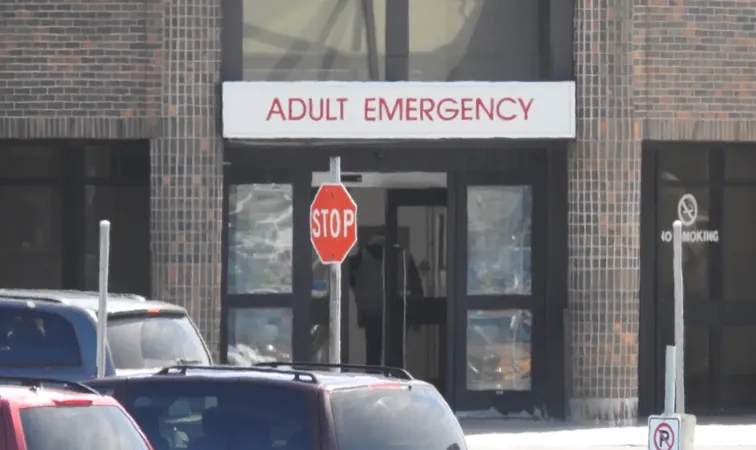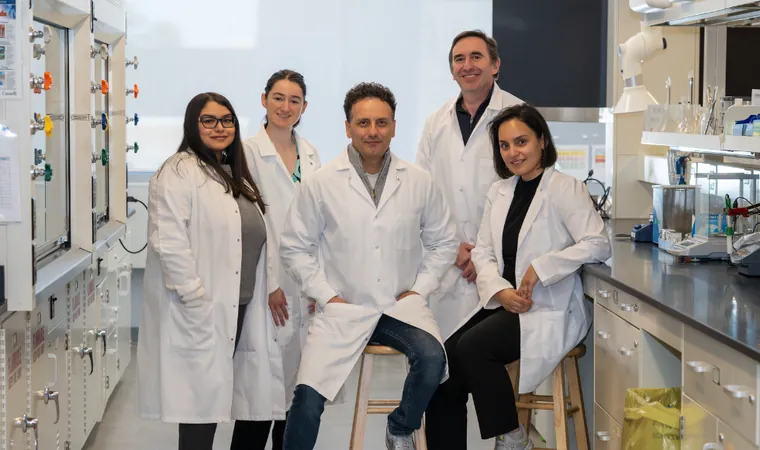
Unlocking the Path to End AIDS by 2030: Why Human Rights Are Crucial
2024-11-26
Author: Michael
A Groundbreaking Report on Human Rights and HIV/AIDS
A groundbreaking report titled "Take the Rights Path to End AIDS" reveals the urgent need to address human rights violations in the fight against HIV/AIDS. Stigma, discrimination, and punitive laws are serious barriers to progress, continually threatening access to essential health services.
In 2023 alone, AIDS-related illnesses claimed the lives of 630,000 individuals, while 1.3 million new HIV infections were reported globally. Despite improvements in treatment and prevention methods, these numbers underscore the critical human rights issues that persist.
The Human Rights Crisis
Marginalized communities, particularly women, girls, and LGBTQ+ individuals, are overwhelmingly affected by the epidemic. The stark reality in Sub-Saharan Africa highlights this disparity: each day, 570 young women aged 15 to 24 are newly infected with HIV— a staggering rate that is three times that of their male counterparts.
Alarmingly, approximately 9.3 million people living with HIV do not have access to treatment that could save their lives. As 21-year-old HIV activist Nomonde Ngema states, "Discrimination and violence against girls must be treated as a human rights and health emergency."
The Role of Criminalization
Punitive laws targeting vulnerable groups aggravate the AIDS crisis. As of 2023, 63 countries continued to criminalize same-sex relationships, resulting in HIV prevalence among gay men and other men who have sex with men being five times higher in these hostile environments compared to places where such laws do not exist. "Instead of punishing marginalized communities, governments need to uphold their human rights," emphasizes Axel Bautista, Community Engagement Manager at MPact Global Action for Gay Men’s Health & Rights.
Despite the UNAIDS 2021 Political Declaration aiming for the elimination of restrictive laws by 2025, progress has been disappointingly slow.
Bridging the Innovation Gap
Advancements in medicine, such as long-acting injectable treatments, offer hope but remain inaccessible to many due to high costs and limited availability. Alexandra Calmy, HIV lead at the University Hospitals of Geneva, stresses, "Medical tools that save lives cannot be treated merely as commodities." The report advocates for a human rights-centered approach to ensure equitable access to these critical health innovations.
Voices of Change
The UNAIDS report highlights insights from influential figures including British musician Elton John and Irish President Michael D. Higgins. Elton John poignantly states, "As long as HIV is seen as a disease for the ‘others,’ AIDS will not be beaten. Inclusion, empathy, and compassion are essential in combating this epidemic."
President Higgins adds weight to the discussion, asserting that ending AIDS as a public health threat is a critical choice that requires political and financial commitment. "The time to choose the correct path is long overdue," he states.
A Global Call to Action
With the 2030 deadline rapidly approaching, UNAIDS emphasizes that combating AIDS is not merely a health issue; it is fundamentally a human rights imperative. By addressing systemic inequalities and ensuring marginalized populations have equitable access to vital services, the global community has the opportunity to achieve the collective goal of eradicating AIDS as a public health threat once and for all.
As we stand on the brink of this critical juncture in public health, the question remains: will the world rise to the occasion and uphold these fundamental human rights, paving the way to a future free of AIDS?









 Brasil (PT)
Brasil (PT)
 Canada (EN)
Canada (EN)
 Chile (ES)
Chile (ES)
 España (ES)
España (ES)
 France (FR)
France (FR)
 Hong Kong (EN)
Hong Kong (EN)
 Italia (IT)
Italia (IT)
 日本 (JA)
日本 (JA)
 Magyarország (HU)
Magyarország (HU)
 Norge (NO)
Norge (NO)
 Polska (PL)
Polska (PL)
 Schweiz (DE)
Schweiz (DE)
 Singapore (EN)
Singapore (EN)
 Sverige (SV)
Sverige (SV)
 Suomi (FI)
Suomi (FI)
 Türkiye (TR)
Türkiye (TR)